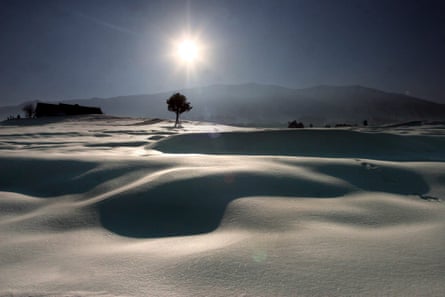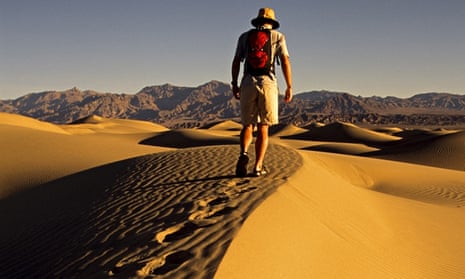“I have some bad news,” my British tour operator told me as I prepared to return to North Korea four months ago. “The DPRK is really short of basic materials. You’re going to have to take your own snacks and water. Even soap.” Then he brightened up. “The good news is that it’s still quite hard to get online there and most mobile phones don’t work. So you’ll be free for as long as you’re there!”
It wasn’t the first time of late I’ve encountered such wisdom. In Namibia a year earlier, I realised that one of the sovereign blessings of the place is that, in nine days and nights, I had barely gone online and had made and received exactly one phone call (to my wife, to remind her when I would be coming home). And, of course, in the presence of desert-adapted rhinos and sand dunes the height of skyscrapers, I had never begun to miss the tiny screen.
More and more people are spending hundreds of pounds a night to stay in “black-hole resorts”, one of whose main attractions is that you hand over your smartphone and tablet on arrival. In a world where the human race accumulates more information every five minutes than exists in the entire US Library of Congress, emptiness and silence are the new luxuries.
Welcome, in short, to “slow travel”, which comes to seem ever more tempting in an age of acceleration. This can take the form of simply unplugging; but it also speaks for the special, everyday allure of seeing somewhere on foot, of going to one place (and not 10) in 14 days, and sometimes of going somewhere to do nothing at all. This used to be known as idling, but in a multi-tasking world, in which we seem to be living at a pace dictated by machines, going at human speed suddenly begins to look like sanity and freedom.
I experienced my own first taste of slow travel 23 years ago, when I checked into a monastery, of all places – even though years of enforced chapel at school had left me all but allergic to church services. It didn’t matter. The chance to take walks, to forget about phone calls, to sit and just catch my breath, so invigorated me that when I moved to Japan, I took a two-room flat that had something of the quiet of a retreat house.

But I also experienced a sense of freedom when I arrived in Zurich, to find I could get everywhere by easy and frequent tram. I’ve known friends take tours on bicycles, or long train rides so they can simply read and write and chat with strangers. I’ve seen them go skiing in Kashmir, where there’s just one chairlift, or fishing in Scotland or Montana to catch some stillness and clarity. Even Ritz-Carltons and Intercontinentals now offer “digital detox” packages to help open your eyes and ears to the wonders around you.
The essence of holidays, and therefore travel, is to get what you don’t get enough of the rest of the time. And for more and more of us, this isn’t movement, diversion or stimulation; we’ve got plenty of that in the palms of our hands. It’s the opposite: the chance to make contact with loved ones, to be in one place and to enjoy the intimacy and sometimes life-changing depth of talking to one person for five – or 15 – hours.
Of course, lying on a beach or in a hammock has always offered something of a respite from the rat race. But as I hear of westerners walking to Mount Kailash, or a film producer going to the Seychelles just to read books with his daughter, as I see how the appeal of a long walk in the woods is not just the woods but the lack of all signals, I suspect that the world has reversed direction since the time, not so long ago, when jumbo jets and Concordes first promised to whisk us across the planet at supersonic speeds. Concorde, after all, is gone now; but near where I live, in the old Japanese capital of Nara, there are more and more rickshaws in view – to cater to the very people who patented the idea of “Six Cities in Four Days”.
Pico Iyer’s latest book is The Art of Stillness (TED Books, £7.99). To buy a copy for £6.39 with free UK p&p, call 0330 333 6846, or go to bookshop.theguardian.com

Comments (…)
Sign in or create your Guardian account to join the discussion